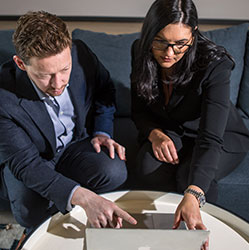Lost Wages
The amount of income you have already lost at the time that you file a claim, as well as future foreseeable lost earnings and employment opportunities due to a long-term injury or permanent disability.
Property Damage
Financial compensation to pay for property repairs or to replace a totaled motor vehicle. A totaled vehicle is one with an after-crash value that is lower than the price of repairs would be.
Pain and Suffering
Compensation for your noneconomic damages, which may include physical pain, emotional suffering, mental anguish, scarring or disfigurement, loss of consortium, inconvenience, and psychological turmoil.
Out-of-Pocket Expenses
Any money that you and your family had to spend because of your accident and injury, such as for travel, transportation, hiring an attorney or filing a claim.
Wrongful Death Damages
In a case involving the death of a victim, surviving dependents can seek funeral and burial reimbursement, lost financial support, lost inheritance, mental anguish, and other damages.
Punitive Damages
If it can be shown that the defendant’s actions were grossly negligent, malicious, or wanton and willful, the victim may also qualify for punitive damages. This is an additional amount awarded to punish a defendant.
The value of an injury claim in Colorado is calculated according to factors that are unique to the case, such as the gravity of the victim’s injuries and the actions of the defendant. Before you sign a release of liability waiver and accept a settlement from an insurance company, speak to an attorney about how much your individual case is worth.
Is There A Timeline To File A Lawsuit In Colorado?
A statute of limitations is a law in Colorado that gives a strict deadline for filing a personal injury claim. Your deadline to file changes based on the state where you’re filing and your type of case, in most circumstances. In Colorado, the time limit for filing a personal injury claim is two years for most personal injury accidents. For automobile accidents, however, the statute of limitations is extended to three years.
One of the following exceptions may apply to your case, depending on the situation:
- Discovery rule: The discovery rule is when the clock does not start ticking for a victim who does not discover his or her injuries immediately until the date of discovery (or reasonable discovery).
- Injured minors: If the victim is under the age of 18, the clock typically won’t start counting down until the date of the victim’s 18th birthday.
- Claim against the government: Filing a lawsuit against a governmental body comes with a shorter statute of limitations – just 180 days, in most cases.
It is important to meet your statute of limitations if you wish to have a valid claim for financial damages. With only some exceptions, the courts will automatically refuse to hear a case that is filed after the statute of limitations has already expired.
What to Look for In A Personal Injury Lawyer In Denver
Choosing your personal injury lawyer is an important decision. Not all attorneys in Denver are created equal. Taking the time to narrow down your choices based on traits that set great injury lawyers apart from the rest can make all the difference to the outcome of your case and your overall experience. Here are essential things to look for in your personal injury lawyer:r
- Experience. Do not settle for a lawyer who has little to no experience in your practice area. If you’ve been injured in a car accident, for example, look for a Denver car accident attorney with years of experience handling car accident cases. There is no substitute for real, hands-on legal experience.
- Results. Ask an attorney about his or her past case results. Although past results do not guarantee future wins, positive settlements and jury verdicts and a good success rate can give you confidence that your lawyer knows what he or she is doing.
- Communication. The lawyer that you choose should engage in frequent, open and honest communication with clients. If it is difficult to get an actual attorney on the phone – not a representative or paralegal – the lawyer may not be the right fit for your case.
- Affordable rates. Ask about how the personal injury lawyer charges for his or her services upfront. Look for a lawyer with reasonable rates, such as one that operates on a contingency fee basis. You should never be left in the dark about how much your case will cost.
- Integrity. All around, you should feel good about the lawyer that you hire. You should have a positive interaction with the lawyer during your free consultation and feel that your best interests will be protected. The right lawyer for you is one that shares your principles, concerns and goals.
In the challenging time after a serious accident in Colorado, you need an attorney you can count on. To find the right fit for you, schedule free consultations with a few top options in the City of Denver. Local knowledge and expertise are important for a lawyer to correctly navigate your case. Then, ask questions to determine if the attorney has the traits you’re looking for. Thousands of clients have trusted the Denver personal injury attorneys of Fang Accident Lawyers to give them a voice in the civil justice system. Find out what sets us apart during a free case review.
Contact Our Denver Personal Injury Lawyer for Help Today
When we take on your case, our injury lawyers in Denver are always available. We will speak with you regularly, remain in communication with the physicians treating your injuries, professionally manage all interactions with insurance companies, and handle your financial matters. This is the level of service we promise our clients at Fang Accident Lawyers.
We will protect your rights and pursue every form of financial compensation you deserve, including medical expenses, economic losses, pain and suffering, loss of enjoyment of life, lost wages, and your out-of-pocket expenses. We charge no legal fees unless we win for you – and our track record of success speaks for itself.
If you were seriously injured by the actions of another party, Fang Accident Lawyers can help. Contact our experienced Denver personal injury attorneys for a free and confidential case evaluation or call us at (720) 379-6363. We proudly serve accident victims and injured people across Colorado, including Colorado Springs, Fort Collins, Denver, and Boulder.











